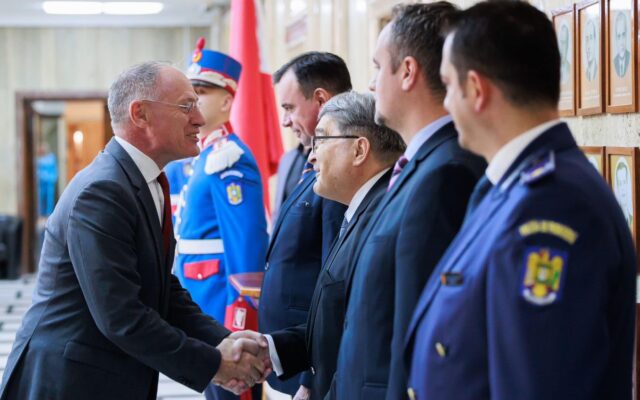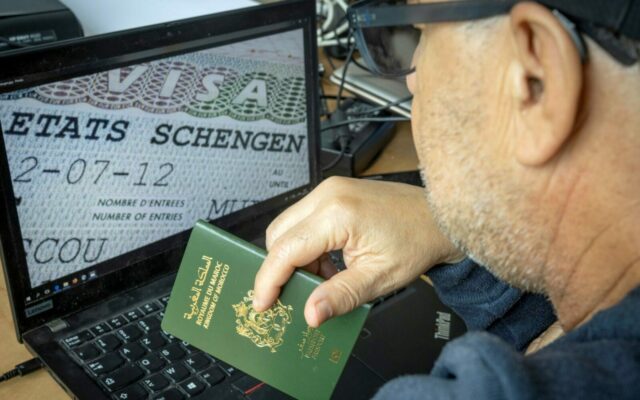
Italy has obstructed the EU accord on migration and asylum, a matter pivotal for Austria as a precondition for retracting its Schengen veto against Romania. The Meloni government is anticipated to mollify its stance, following Germany’s consent to a significant compromise.
After Germany accepted a long-awaited compromise, Italy blocked the EU’s flagship migration reform in a surprise move. During a meeting of EU interior ministers, Rome, in a last-minute decision, suspended a decision on the so-called crisis regulation, dashing hopes of reaching an agreement by the end of the day, Politico reports. However, Ylva Johansson, the head of the EU’s home affairs department, guaranteed that EU ambassadors would sign the agreement in the coming days.
Urmărește cele mai noi producții video G4Media
- articolul continuă mai jos -
- Why this is crucial for Romania: The Austrian government has repeatedly announced publicly that it will not agree to welcome Romania and Bulgaria into the Schengen area until the European migration and asylum system is thoroughly reformed. Migration is an extremely important political and social issue in Vienna, after an official report shows that 61% more people smugglers were arrested in Austria in 2022 than in 2021, and Austria’s reception centres are full.
The most controversial topic is a crisis mechanism designed to contribute to a rapid and coherent European response in the event of a mass influx of migrants into an EU country, as was the case during the 2015-2016 crisis, Agerpres also reports.
Germany, which has so far refused to support the text citing humanitarian reasons, agreed to the proposal during the meeting in Brussels. At the end of the meeting, Spanish Interior Minister Fernando Grande-Marlaska Gomez, whose country holds the six-month presidency of the EU Council, noted that the compromise text was supported by a „large majority” of EU member states.
„We are talking about migration, which is a European challenge we all face,” the Spanish official told a press conference. He mandated the ambassadors of the member states to formally endorse this final component of the migration and asylum pact, which will then be subject to negotiations with the European Parliament.
But the compromise provoked objections from Italy, which, through the voice of foreign minister Antonio Tajani, visiting Berlin, asked for more time to examine the proposal in more detail, including from a legal point of view. According to the Italian press, Rome’s reluctance is due to concessions made to Germany, especially regarding the protection of NGOs involved in rescue operations at sea.
In the event of a „massive and exceptional” influx of migrants, the text provides for a less protective regime for asylum seekers than the usual procedures.
But the Italian daily La Repubblica writes that the government in Rome has not closed the door to an agreement, quite the contrary. There is confidence that Italy’s reasons will be heard. Or, at least in part, understood. That the passage of the regulation that excludes NGOs from being able to „exploit” migrants to destabilise a country will be limited. But the feeling is that Italy’s approval will eventually come.
Progress on this issue would pave the way for an agreement on reforming EU asylum policy before the European elections in June, after nearly 10 years of failed attempts at reform. „Italy did not say no… it just asked for time,” Italian Foreign Minister Antonio Tajani told a news conference in Berlin alongside his German counterpart Annalena Baerbock. Tajani added that more time was needed „to examine the content of this proposal from a legal point of view”.
Although no vote was on the agenda, ministers at Thursday’s meeting aimed to reach a political agreement.
Earlier in the day, Germany’s centre-left government gave up its veto over the deal, facilitating an agreement on a crisis regulation detailing how EU border countries treat asylum seekers during migration peaks. Initially, the Greens – who are part of Germany’s governing coalition – called for exempting minors from border controls and opposed attempts to curtail migrants’ rights in times of crisis. „Today, we will accept this compromise,” German Interior Minister Nancy Faeser told fellow EU interior ministers during a public session in Brussels this morning.
Germany’s waiver of its veto means that technically the agreement should have enough votes to pass. But three diplomats told Politico that without Rome on board, any deal is politically impossible. Italy has recently seen new spikes in migrant arrivals from North Africa via the Mediterranean.
In a series of last-minute concessions designed to appease German Greens, the Spanish presidency of the Council proposed a text offering stronger human rights guarantees for migrants. But Italy had doubts about the new language, two other diplomats said. In particular, Italy objected to softer language on migrant rescue missions that was added to the latest draft agreement, POLITICO consulted, according to the same two diplomats.
Such NGOs are a thorn in the side of Italy’s right-wing government, which is at loggerheads with Berlin over the German government’s funding of humanitarian rescue missions off the Italian coast.
EU ministers are facing mounting pressure to agree a deal amid a surge in migrants arriving in Italy and ahead of European elections next year. Last week, the European Parliament blocked talks on key dossiers of the EU migration pact, including the crisis regulation, in a bid to force member countries to approve it as soon as possible.

Donează lunar pentru susținerea proiectului G4Media
Donează suma dorită pentru susținerea proiectului G4Media
CONT LEI: RO89RZBR0000060019874867
Deschis la Raiffeisen Bank





